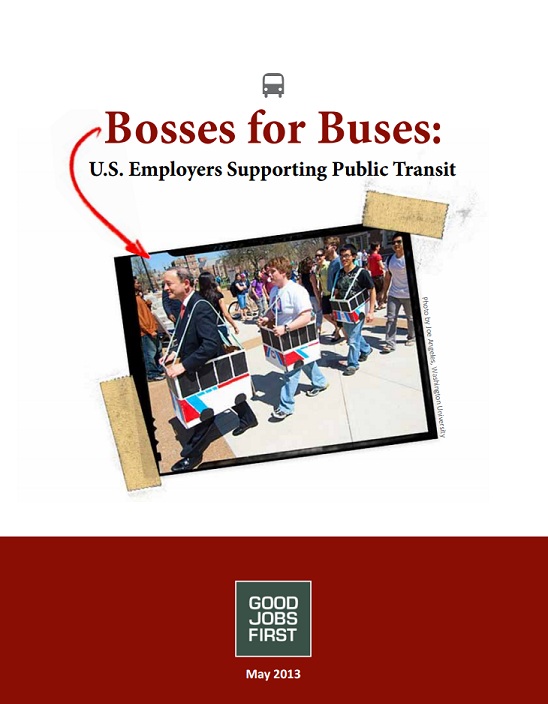Good Jobs First’s recently-released report, “Bosses for Buses,” finds a schism in business support for transit. At the local level, non-profits such as universities and hospitals, as well as local business coalitions largely recognize the importance of transit investment, pushing “state and local ballot initiatives for transit [that] consistently win more than 70 percent of the time”, but the lack of a cohesive business message at the national level hinders advocacy for transit.
The report provides case studies at the local level of businesses supporting transit, such as Staten Island’s Amalgamated Transit Union Local 726 which, by partnering with the local Chamber of Commerce and other business-centered groups, won dedicated bus lanes on the Verrazano-Narrows Bridge, bigger buses and an express bus fare reduction.
This local support for transit in our region is highlighted even further with other examples not mentioned in the report:
- Connecticut’s MetroHartford Alliance, which was a strong advocate for CTfastrak,
- the Fairfield County Business Council, which supported transit-oriented development at the Stamford train station,
- the Partnership for New York City, whose NYC Jobs Blueprint calls for “additional cross-Hudson solutions, improved airport access and regional freight movement, Bus Rapid Transit, and consideration of congestion pricing and bridge tolls,”
- and the active involvement of the Elmont and Hicksville Chambers of Commerce in making certain business interests were represented during the privatization of Nassau County’s bus system in 2011.
To be sure, there is more that local businesses can do to support transit at the state and municipal level—particularly through business support for expanding the federal transit benefit that enables employees to deduct up to $245/month for transit commuting expenses—but the real work remains at the national level. According to the report, support for transit mainly comes from businesses that “make a business selling to transit agencies” – but not from the thousands of businesses whose employees depend on transit. But even the support for transit that exists at the national level is not unified, but fractured:
There are also apparent divisions that mirror recurring tensions within public transportation circles, such as that between capital budgets and operating funds. There are other divisions, especially by sector and geography.
Creating a unified business voice for transit at the national level will have real impacts on transit advocacy. None of the recent federal bills that had major implications for transit—the stimulus of 2009, the 2012 transportation authorization, and the compromise on income taxes earlier this year—had a strong business voice, and with work already beginning on the reauthorization of the federal transit bill, cohesive business messaging will be necessary to ensure that transit works for all sectors of the economy.


The Connecticut business support for transit is just for support of construction companies contracts, not for transit riders per se–with the Fasttrack and transit oriented development around the Stamford Train Station–while transit service remains dismal and Metro-North fares are climbing to unaffordable amounts. Many employers even discourage transit use particularly bus transit use as to long transit headways, unreliable service and no service at all for many retail, nursing home or restaurant shifts. Employers in job ads leave off their locations to discourage transit users or put in ads even for office jobs requirements for drivers’ licenses or reliable transportation.